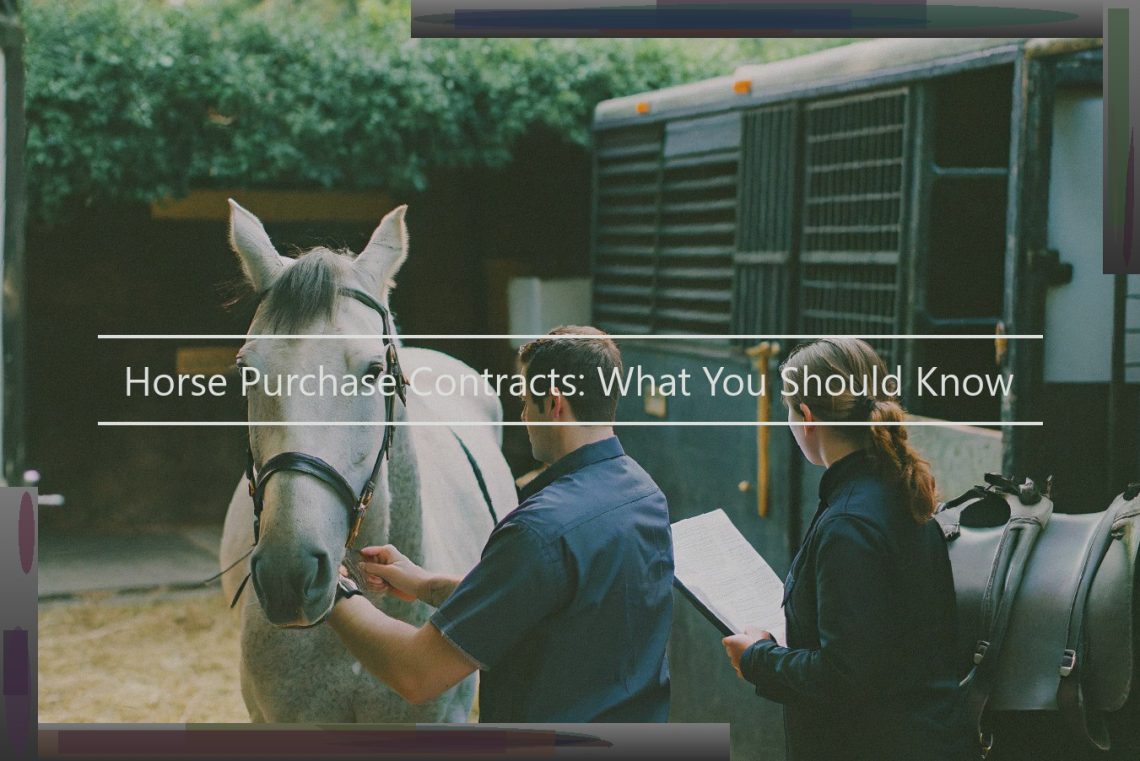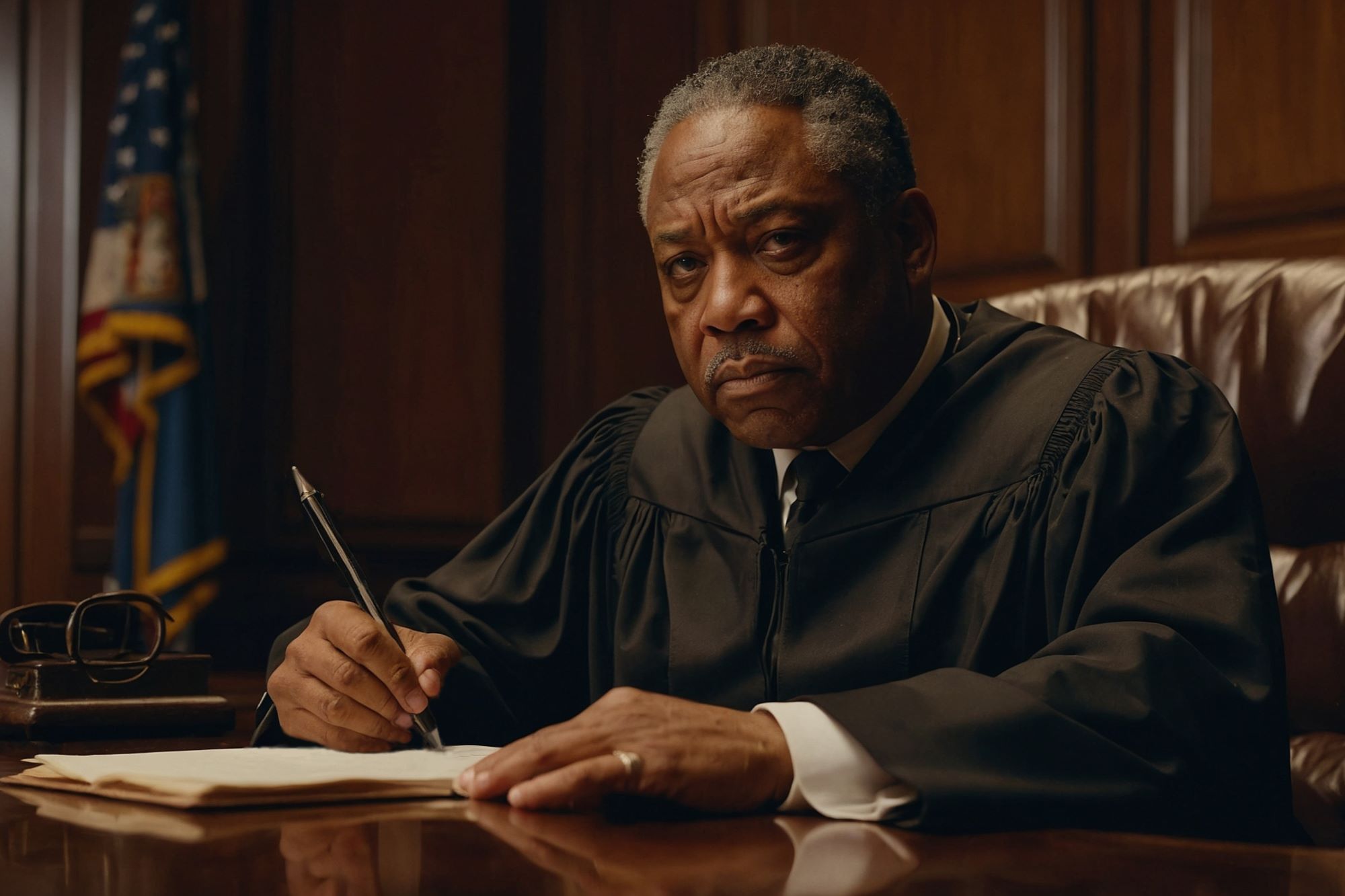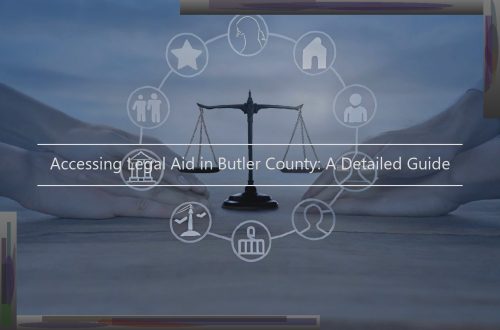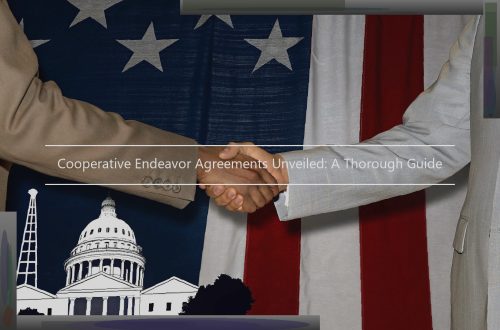
Horse Purchase Contracts: What You Should Know
What is a Horse Purchase Contract?
A horse purchase contract is a written agreement between the buyer and the seller that sets forth the terms and conditions upon which the buyer will purchase, and the seller will sell, a horse. The contract will include various provisions for services or products to be delivered as part of the sale, such as the veterinarian performing a prepurchase veterinary examination on the horse, the boarding facility where the horse will be kept before transfer, a shipping facility for delivery of the horse, a trainer for training of the horse, options to breed the horse, and so on.
A horse purchase contract is important for both buyer and seller of the horse to protect themselves in the event of an issue with the transaction . For example, if the buyer receives the horse and takes it to a different boarding facility than provided in the purchase contract, the buyer can be forced to pay for board at the boarding facility specified in the purchase contract. Likewise, a seller who has pre-signed breeding certificates can be forced to honor the breeding certificates even though the buyer did not fulfill a condition in the purchase contract.
If a horse purchase contract is not used and the parties have only exchanged purchase order, invoice, or bills of sale with no agreement, a court may try to synthesize the terms from the parties’ communications in order to interpret the agreement. This can be disastrous for both buyer and seller if the other party later tries to enforce terms that were not specifically stated in the bills of sale, an invoice, or other documents, even if those terms were agreed upon by both parties.
What are the Key Provisions of a Horse Purchase Contract?
The contract you execute when purchasing a horse is not only in your best interest, it’s your only protection against unscrupulous sellers. While equestrians love our horses, sometimes they can be less than honest about a sale.
While you are under no statutory or legal requirement to execute a written document setting out the terms of your horse purchase, a written purchase agreement provides rights, remedies, and duties solely as a matter of contract. Without it, the law will treat any agreement for the sale of a horse as an "unwritten" contract. That could mean that you won’t have any remedies if the seller fails to deliver from the terms of the unwritten contract for the sale. Whether you are buying privately or through a dealer or agent (who will probably have you execute their boilerplate), you still need to execute your own written purchase agreement to protect your rights.
Essential Elements of a Horse Purchase Agreement
Identification of the horse:
-A description of the horse, including its breed, sex, age, colors, markings and "permanent" ID (brand, tattoo, chip), plus the horse’s name(s) and any other details that make it unique will allow you and the seller to agree on the horse being sold.
Warranties:
- A warranty that the seller owns the horse free and clear of all claims, liens and encumbrances, or an express statement of all those affecting the horse so that you are accepting them
- Warranties relating to the horse’s characteristics, abilities, health and condition in general
- Indemnification against all damages resulting from any breach of the above warranties or any misrepresentations in the sale of the horse
- Warranties or representations of the horse’s performance and aptitude in a particular discipline if you intend to use the horse for those purposes
Payment provisions:
- The price to be paid for the horse (if breeding rights are also being sold, the price might be disbursed according to a schedule stated in the contract)
- After closing, if your check must clear as a condition of closing the sale, or if you have an option to rescind the contract if the check fails to clear
- Terms of payment
- In full or installments
- payment methods (cash, personal or business check, wire transfer, etc.)
Contingencies or conditions of sale:
- Horse can be subject to a pre-sale veterinary examination to determine health and soundness
- Sale is contingent on the horse passing a pre-purchase examination
- Subject to satisfactory review of the horse’s records
- Subject to satisfactory negotiations with any of the current owners, if more than one
- Subject to buyer’s receipt of financing
- Subject to buyer’s reviewing the seller’s records regarding legal title being clear and free
- Subject to seller being able to deliver title free and clear
- Subject to buyer’s acceptance of any particular breed or disciplinary restrictions on the horse
- Subject to buyer’s review of the seller’s facility (or ranch) if it will be transporting the horse to your facility after the sale
- Subject to his right to conduct and review background investigations of the seller, its facility and its employees
- Subject to any contingencies not disclosed to the seller in writing with a period of time for the seller to respond
- Subject to his right to satisfaction of any of his conditions set forth in the contract
Listing of additional items being sold with the horse:
– Equipment, tack, bone, registration papers and any other such items can be referenced by type and auction number or other identifiers.
Due date of payment
– At which point title to the horse will be delivered to buyer, and all funds transferred to seller at closing
– Deliveries of paperwork (registration papers, brand inspection, health certificate and Coggins test results) to be made by seller to buyer, and bill of sale, transfer, or other documents necessary for the buyer to be able to take possession of the horse free and clear of any liens, provided that warranties survive closing for horse’s tack or other items.
Default
– Specify remedies available to the buyer specifically in the event of default by the seller, and if seller defaults, rights and remedies available.
Indemnification against losses resulting from breach of any warranties
Floor for damages ($X0, inclusive of consequential damages, if any), particularly for breach of warranties against soundness
Governing law
– State laws that apply to the interpretation of the contract
Dispute resolution
– Specify how disputes will be handled (arbitration, mediation, litigation, etc.)
Equine Purchase Agreements: Legal Essentials
State law controls many aspects of a horse purchase from the rights and obligations of the buyer and seller to the skills and competencies required of the licensed professionals who may assist with the sale. A horse purchase agreement must be consistent with state laws and regulations, including those governing the sale of goods in general (Uniform Commercial Code), Real Property Law (if there is an associated barn and stable facility) and the legal rights of owners of livestock, which can vary dramatically from state to state. If the contract places limitations on the buyer in his or her future ownership e.g. agreement not to sue for defects discovered after the sale, or to indemnify the seller if the horse injures someone, those limitations may be invalid. States differ in the enforceability of these types of provisions in the horse sale context, particularly with respect to inducing waiver of statutory rights (such as certain implied warranties). Other state-specific factors may come into play in a dispute based on the horse sale or purchase. This may include jurisdiction (in which state a dispute must be arbitrated or litigated, if necessary) and location of the horse itself.
Common Mistakes in Horse Purchase Contracts
Common mistakes people make (and how to avoid them) There are several pitfalls buyers and sellers face when it comes to these contracts. Perhaps the most common mistake is failing to have a written agreement at all. Many people assume that, because horses are considered "goods" under the law, they are not subject to the Statute of Frauds, which requires all contracts involving the sale of goods worth more than $500 to be in writing. This is incorrect: No person may bring any action, suit, or counterclaim upon a contract for the sale of goods over five hundred dollars unless the contract is in writing and signed by the party to be charged or by some other person thereunto by him lawfully authorized – N.C.G.S. §25-2-201 What contracts must be in writing. Parties often try to include "as is" language in these agreements when they are in fact selling a "pet." Generally, pet sales are not subject to the Statute of Frauds, and while "as is" language might weaken a claim, it does not bar a buyer’s suits for fraud or misrepresentation . However, many people mistake "pet" with "farm animal," and both parties often sell "pets" when in fact they are selling "farm animals." Many farm animals are pets, but a "horse" is a "farm animal." Any property that has value, whether real property or personal property, is considered a "goods" for the purposes of contract law. For example, under the law all dairy cattle and cows used for breeding are considered "goods" for the purposes of the Statute of Frauds. Likewise, "livestock" as defined by the USDA includes horses. If you sell your horse as a "pet" and put "as is" language in the agreement, you cannot claim it was worth more than $500 (if the horse later dies because the buyer neglected to properly tend to it) and thereby avoid the Statute of Frauds. Unlike other states, North Carolina does not provide an exception for livestock under the Statute of Frauds. North Carolina does provide an exception for "dogs" sold in the State. However, being designated as "livestock" the transaction should be in writing.
Tailoring Horse Purchase Contracts to Your Needs
The unique characteristics of every sale and the subsequent actions of the parties require all horse purchase agreements to be customized and the terms of each sale become more tailored and precise, not less. Horse purchase agreements should always address any specific animal and its purpose. Additional clauses must be drafted for horses to be purchased for breeding, for training, or for actual competition. Are semen and veterinary records available to the buyer? Has a pre-purchase exam been performed? Are there health guarantees in the contract? Is there a buy back clause? Does the agreement address resale rights or commissions on that resale? Are these rights stated in a separate confidentiality agreement or are they restated in the body of the purchase agreement? Does the contract account for the current situation with the horse, such as if it is not currently breeding or competing? Does the agreement address how any breed papers will be transferred? Perhaps the sale involves a horse that was bred overseas and as a result has regulations pertaining to the transfer of papers. Does the contract discuss advertising of the horse before or after the sale? These questions and many more should be asked to make sure that contracts are specific to your purchase of a horse.
How to Complete a Horse Purchase Contract
In finalizing a horse purchase contract, the best course of action is to treat it like a formal negotiation, even though all aspects of the negotiation may happen by email or text. Make sure that any and all changes to the purchase agreement are incorporated into the document so all parties know what they are agreeing to. In other words, taking out language and just initialing where the language used to be will not suffice. Likewise, when you make any changes, make sure to initial each page to ensure that the same page has not been replaced and you have not missed any changes.
If you are worried about making a mistake, then track changes in Word so your track changes are turned on and anyone who opens the document can see those changes and track how the document has changed over time. Don’t forget to be sure all terms are finalized before you both sign. There is no such thing as an enforceable oral contract for a horse, so be sure to get the document signed. We have seen this happen where the transaction is so far along, no one wants to go back to the real estate lawyer or other attorney to have the contract drafted, but in those cases, we still recommend that the buyer and seller sign a contract generated by the party who has the most incentive to get the contract prepared and signed. Keep in mind any changes to an earlier draft of a contract can be sent or signed remotely.
We closed on some understanding or amendment of a prior understanding of the contract. If the contract is apparent , it is better to have the new contract signed and than just providing an updated acknowledgement of the changes. If you are not using a form of purchase contract created by an organization, such as an association or breed registry, come up with a title for the new contract you are using that describes what the contract is. For example, just calling it a buyer’s contract, makes it seem like the agreement is one between the buyer and the seller. If you know an amendment to a prior contract is, in fact, a completely new contract and the only thing similar to the original contract is the day it was signed, you may want to call it a new contract. Make sure the name of the document you are creating corresponds with what you want the document to show. When you sign a contract as an attorney-in-fact, be sure to add the words "attorney-in-fact" next to your signature, rather than having your signature alone.
The best way to ensure a contract shows that you intend it to be a valid and binding contract and that it can be enforced under the laws of the state where the transaction took place, even if that state does not require such a contract to be in writing, is to stipulate it in the contract. In other words, say you want the contract to be enforceable as a binding contract between the buyer and the seller and that the parties want the contract to be enforceable under the laws where the transaction took place, even if those laws would not necessarily require such an agreement in writing. If you typically use a form of contract created by an organization, association or registry, it may have a paragraph addressing this topic.




